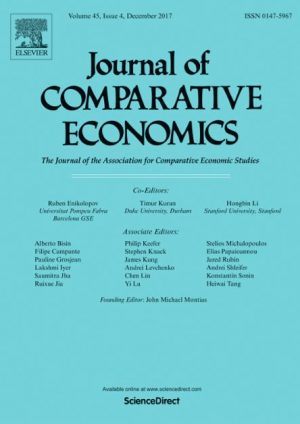Talking in the Present, Caring for the Future: Language and Environment
This paper identifies a new source that explains environmental behaviour: the presence of future tense marking in language. We predict that languages that grammatically mark the future affect speakers’ intertemporal preferences and thereby reduce their willingness to address environmental problems. We first show that speakers of languages with future tense marking are less likely to adopt environmentally responsible behaviours and to support policies to prevent environmental damage. We then document that this effect holds across countries: future tense marking is an important determinant of climate change policies and global environmental cooperation. The results suggest that there may be deep and surprising obstacles for attempts to address climate change.




